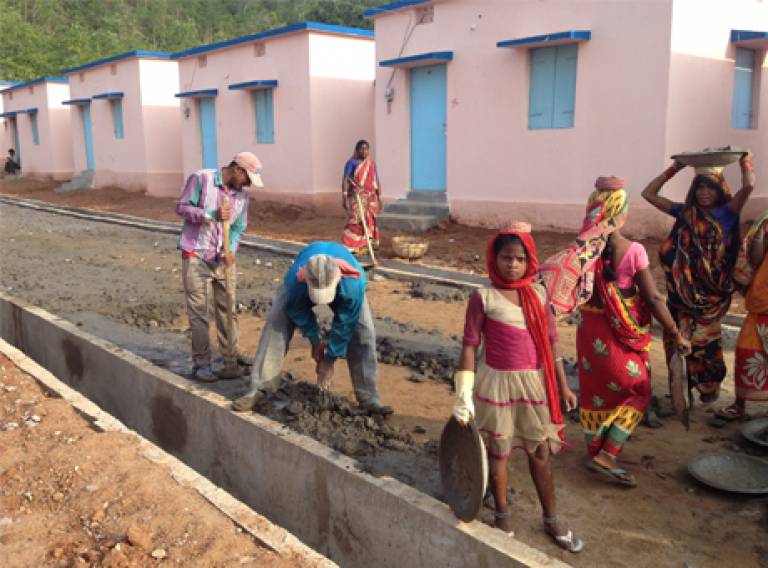Research on Risks of Urban Relocation Begins
11 September 2015

The research "Reducing Relocation and Resettlement Risk in Urban Areas" has launched a microsite to present the research, share its developments, follow the initiatives and download the reports and other outputs produced during the lifetime of the project.
The research examines the implications of climate-risk related resettlement and relocation policies in cities across four countries: Uganda, Peru, Colombia, Mexico and India. Densely-populated urban centres are often exposed to multiple climate-related hazards. Many national and local governments are resettling people who live in areas affected by such hazards. While urban resettlement programmes are widespread, the social and economic impacts of resettlement and relocation on individuals, society and urban regions are not well understood either by experts or by those enacting them.
The research seeks to understand the costs and benefits of resettlement from both the government and individual’s perspective; and how resettlement impacts people’s well-being and resilience over different time frames. The research will compare approaches and identify which policies and practices for climate-related resettlement deliver the most beneficial outcomes.
The project's dedicated microsite went live today. Visit it at:
https://www.ucl.ac.uk/bartlett/development/reducing-relocation-risk-urban-areas
Partners and Funders
"Reducing Relocation and Resettlement Risk in Urban Areas" is carried out by The Bartlett Development Planning Unit - DPU (Cassidy Johnson - PI, Colin Marx), the Indian Institute for Human Settlements - IIHS (Garima Jain - PI, Amir Bazaz, Rohit Jigyasu, Teja Malladi), the Latin American Social Science Faculty/Facultad Latinoamericana de Ciencias Sociales - FLACSO (Allan Lavell - Team Leader, Omar Cardona, Angel Eslava, Elizabeth Mansilla), and Makerere University, Uganda (Shuaib Lwasa)
The project is funded by the Climate and Development Knowledge Network (CDKN).
 Close
Close

